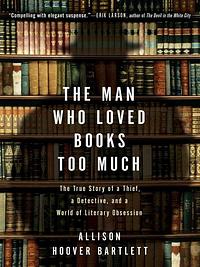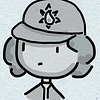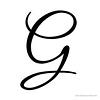You need to sign in or sign up before continuing.
Take a photo of a barcode or cover
This is the true story of John Gilkey (the thief) and Ken Sanders (the man who led to his capture) and the world of rare book collecting. It was a fascinating story by Bartlett, a journalist by trade, and so much more than a true crime book. Bartlett also talked to various dealers and collectors about why they collect and what rare books mean to them, and there is a spectrum of answers from "the thrill of the pursuit" to "we may only see these beautiful objects once in a lifetime".
The book made me think about collecting and, as I am an obsessive reader, am I collector? I came to the conclusion that I am not a collector of books so much as I am a collector of stories, and the stories are collected in my mind and memory. Some of the good ones get into my heart. I love a book that makes me reflect, and this one asked great questions.
The book made me think about collecting and, as I am an obsessive reader, am I collector? I came to the conclusion that I am not a collector of books so much as I am a collector of stories, and the stories are collected in my mind and memory. Some of the good ones get into my heart. I love a book that makes me reflect, and this one asked great questions.
informative
mysterious
reflective
medium-paced
informative
medium-paced
I cannot recommend this book. The writing was dull and overly narrative and the main character had absolutely no redeeming characteristics...he is not even an interesting thief. Sadly, in the end, we are left feeling badly for rare book sellers who must still contend with a middle-aged narcissist who cannot comprehend why he should not own everything he wants, even if it means that he steals it from others.
This is a true account about a book thief who stole rare books and instead of feeling remorse or guilty, he continues thinking that he deserves to have free rare books, and in fact, thinks that his request for everyone to donate a book to him is reasonable.
I found it fascinating, because although I’ve always loved and collected books, I never had any interest in first editions, hardbacks, or rare books.
Mostly I think it’s because I don’t think I have the ability to take care of them the way they need to be, and I would certainly feel heartbroken if I had a priceless book in my care that ended up damaged because of the way I kept or handled it.
I did consider myself a book collector though, but now I wonder if I was right. You see, back in Malaysia, our libraries suck, and the only way I could get books was by acquiring them somehow, from bookstores, or used book stores, or people giving away their old books, etc. And I collected as many books as I could because I read a lot!
Now that I’m in Calgary, and have access to millions of books from the public library, I’m perfectly happy to borrow and not acquire at all. I realize that it’s not the books, but the contents, that’s important to me. So I’m not a book collector after all! There goes my life’s identity!
Fortunately, I’m still a reader, and this part of my identity will never change.
The Man Who Loved Books Too Much will get you thinking about your own relationship with books. I recommend it to everyone who’s ever had books play an important role in their lives.
I found it fascinating, because although I’ve always loved and collected books, I never had any interest in first editions, hardbacks, or rare books.
Mostly I think it’s because I don’t think I have the ability to take care of them the way they need to be, and I would certainly feel heartbroken if I had a priceless book in my care that ended up damaged because of the way I kept or handled it.
I did consider myself a book collector though, but now I wonder if I was right. You see, back in Malaysia, our libraries suck, and the only way I could get books was by acquiring them somehow, from bookstores, or used book stores, or people giving away their old books, etc. And I collected as many books as I could because I read a lot!
Now that I’m in Calgary, and have access to millions of books from the public library, I’m perfectly happy to borrow and not acquire at all. I realize that it’s not the books, but the contents, that’s important to me. So I’m not a book collector after all! There goes my life’s identity!
Fortunately, I’m still a reader, and this part of my identity will never change.
The Man Who Loved Books Too Much will get you thinking about your own relationship with books. I recommend it to everyone who’s ever had books play an important role in their lives.
This is a true account about a book thief who stole rare books and instead of feeling remorse or guilty, he continues thinking that he deserves to have free rare books, and in fact, thinks that his request for everyone to donate a book to him is reasonable.
I found it fascinating, because although I’ve always loved and collected books, I never had any interest in first editions, hardbacks, or rare books.
Mostly I think it’s because I don’t think I have the ability to take care of them the way they need to be, and I would certainly feel heartbroken if I had a priceless book in my care that ended up damaged because of the way I kept or handled it.
I did consider myself a book collector though, but now I wonder if I was right. You see, back in Malaysia, our libraries suck, and the only way I could get books was by acquiring them somehow, from bookstores, or used book stores, or people giving away their old books, etc. And I collected as many books as I could because I read a lot!
Now that I’m in Calgary, and have access to millions of books from the public library, I’m perfectly happy to borrow and not acquire at all. I realize that it’s not the books, but the contents, that’s important to me. So I’m not a book collector after all! There goes my life’s identity!
Fortunately, I’m still a reader, and this part of my identity will never change.
The Man Who Loved Books Too Much will get you thinking about your own relationship with books. I recommend it to everyone who’s ever had books play an important role in their lives.
I found it fascinating, because although I’ve always loved and collected books, I never had any interest in first editions, hardbacks, or rare books.
Mostly I think it’s because I don’t think I have the ability to take care of them the way they need to be, and I would certainly feel heartbroken if I had a priceless book in my care that ended up damaged because of the way I kept or handled it.
I did consider myself a book collector though, but now I wonder if I was right. You see, back in Malaysia, our libraries suck, and the only way I could get books was by acquiring them somehow, from bookstores, or used book stores, or people giving away their old books, etc. And I collected as many books as I could because I read a lot!
Now that I’m in Calgary, and have access to millions of books from the public library, I’m perfectly happy to borrow and not acquire at all. I realize that it’s not the books, but the contents, that’s important to me. So I’m not a book collector after all! There goes my life’s identity!
Fortunately, I’m still a reader, and this part of my identity will never change.
The Man Who Loved Books Too Much will get you thinking about your own relationship with books. I recommend it to everyone who’s ever had books play an important role in their lives.
I found the world of collecting rare books fascinating. It was almost a breezy read, but she packed in a lot of information. I kept feeling she was almost complicit in the theft of some of the books though, and found her relationship with the thief a little off putting.
Enthralling and well-written. The author does a great job painting a portrait of an inveterate thief of rare books.
I loved this book. And why not? It's a book about the love of books! Right from the beginning I felt like the author was describing many of my own feelings about books, for example, here is a quote about the importance of books in one's life:
I could tell I was the first to open it. For several days I lived in Wilbur’s world, and the only thing as sad as Charlotte’s death, maybe even sadder, was that I had come to the end of the book. I valued that half-dream state of being lost in a book so much that I limited the number of pages I let myself read each day in order to put of the inevitable end, my banishment from that world. I still do this. It doesn’t make sense, though, because the pleasure of that world does not really end for good. You can always start over on page one-and you can remember. Whenever I have spotted my old Charlotte’s Web (on my son’s shelf, then my daughter’s), I have recalled how it came to me. It’s a personal record of one chapter of my life, just as other chapters have other books I associate with them. The pattern continues; my daughter returned from camp last summer with her copy of Motherless Brooklyn in a state approaching ruin. She told me she’d dropped it into a creek, but couldn’t bear to leave it behind, even after she’d finished it. This book’s body inextricably linked to her experience of reading it. I hope that she continues to hold on to it, because as long as she does, its wavy expanded pages will remind her of the hot day she read it with her feet in the water-and of the fourteen year-old she was at the time. A book is much more than a delivery vehicle for its contents, and from my perspective, this fair was a concentrated celebration of that fact. (page 20-1)
I still remember when I got some of my early books. I convinced my mom in fifth grade to buy the first Harry Potter book for me at the book fair when she went in for the parent-teacher conference. Then, in sixth grade, I used my own money to buy The Lord of the Rings at the book fair in school. I still remember the exact room and how I stood there debating what book I wanted to get. I still have that copy, it's cover is completely taped on and it looks like it could disintegrate at any moment (I carried it for a long time- it takes a sixth grader a long time to finish LOTR!) but I can't get rid of it. I had to buy a new copy last year for a class that I took but I still couldn't get rid of my first copy. It's special. It's part of my childhood and introduction to a life-long passion for books. I still get a rush of excitement when I get a new book in the mail. I'm sure I have a big release of dopamine and probably some serotonin and norepinephrine- which is probably why I keep buying them. It's addicting! And fun.
The whole book isn't just about the love of books though. The Man Who Loved Books Too Much focuses on rare books and those who collect, sell, and steal them. Sprinkled with many little anecdotes of book thievery in the past, it mostly chronicles John Gilkey's passion and theft of many, many rare books. The author interviews John many times trying to understand his psychology behind his theft. He doesn't sell the books so it's not financially related, rather, Gilkey seeks to show a certain character and intelligence and pride through owning rare and amazing books. Bartlett also interviews many collectors and sellers of antique and rare books. This book gives a glimpse into the psychology of many book connoisseurs, which is fascinating.
The only part that I did not like was when the author's part in the Gilkey's story became a little ethically questionable and so the author questioned her role but then the book ended. I thought that it was fine that she brought her own role into the book, but then it ended before she had a resolution for her questioning.
I could tell I was the first to open it. For several days I lived in Wilbur’s world, and the only thing as sad as Charlotte’s death, maybe even sadder, was that I had come to the end of the book. I valued that half-dream state of being lost in a book so much that I limited the number of pages I let myself read each day in order to put of the inevitable end, my banishment from that world. I still do this. It doesn’t make sense, though, because the pleasure of that world does not really end for good. You can always start over on page one-and you can remember. Whenever I have spotted my old Charlotte’s Web (on my son’s shelf, then my daughter’s), I have recalled how it came to me. It’s a personal record of one chapter of my life, just as other chapters have other books I associate with them. The pattern continues; my daughter returned from camp last summer with her copy of Motherless Brooklyn in a state approaching ruin. She told me she’d dropped it into a creek, but couldn’t bear to leave it behind, even after she’d finished it. This book’s body inextricably linked to her experience of reading it. I hope that she continues to hold on to it, because as long as she does, its wavy expanded pages will remind her of the hot day she read it with her feet in the water-and of the fourteen year-old she was at the time. A book is much more than a delivery vehicle for its contents, and from my perspective, this fair was a concentrated celebration of that fact. (page 20-1)
I still remember when I got some of my early books. I convinced my mom in fifth grade to buy the first Harry Potter book for me at the book fair when she went in for the parent-teacher conference. Then, in sixth grade, I used my own money to buy The Lord of the Rings at the book fair in school. I still remember the exact room and how I stood there debating what book I wanted to get. I still have that copy, it's cover is completely taped on and it looks like it could disintegrate at any moment (I carried it for a long time- it takes a sixth grader a long time to finish LOTR!) but I can't get rid of it. I had to buy a new copy last year for a class that I took but I still couldn't get rid of my first copy. It's special. It's part of my childhood and introduction to a life-long passion for books. I still get a rush of excitement when I get a new book in the mail. I'm sure I have a big release of dopamine and probably some serotonin and norepinephrine- which is probably why I keep buying them. It's addicting! And fun.
The whole book isn't just about the love of books though. The Man Who Loved Books Too Much focuses on rare books and those who collect, sell, and steal them. Sprinkled with many little anecdotes of book thievery in the past, it mostly chronicles John Gilkey's passion and theft of many, many rare books. The author interviews John many times trying to understand his psychology behind his theft. He doesn't sell the books so it's not financially related, rather, Gilkey seeks to show a certain character and intelligence and pride through owning rare and amazing books. Bartlett also interviews many collectors and sellers of antique and rare books. This book gives a glimpse into the psychology of many book connoisseurs, which is fascinating.
The only part that I did not like was when the author's part in the Gilkey's story became a little ethically questionable and so the author questioned her role but then the book ended. I thought that it was fine that she brought her own role into the book, but then it ended before she had a resolution for her questioning.
This is for the "Book of True Crime" challenge in the Book Riot Read Harder challenge. I didn't want to read anything about murder or kidnapping or, really, bad things happening to people, and this came up in the Get Booked podcast a few weeks ago.
I ended up really disliking the narrator, and I'm not sure why. It came to feel like she was fighting not to be taken in by Gilkey, when his faults were so obvious it would seem impossible to fall under his spell.
I ended up really disliking the narrator, and I'm not sure why. It came to feel like she was fighting not to be taken in by Gilkey, when his faults were so obvious it would seem impossible to fall under his spell.





